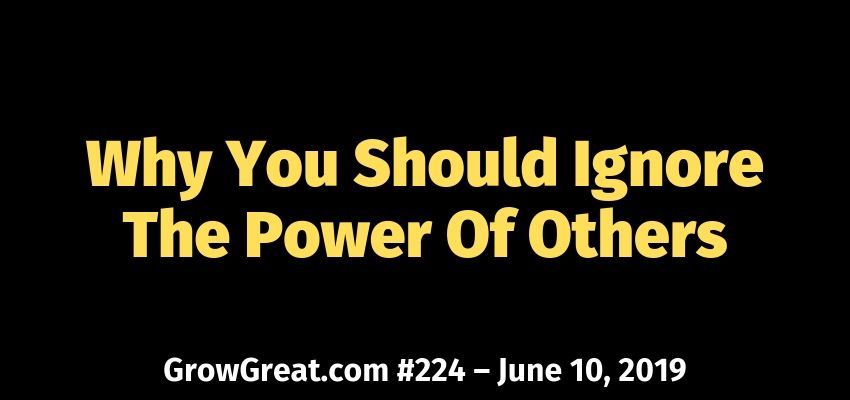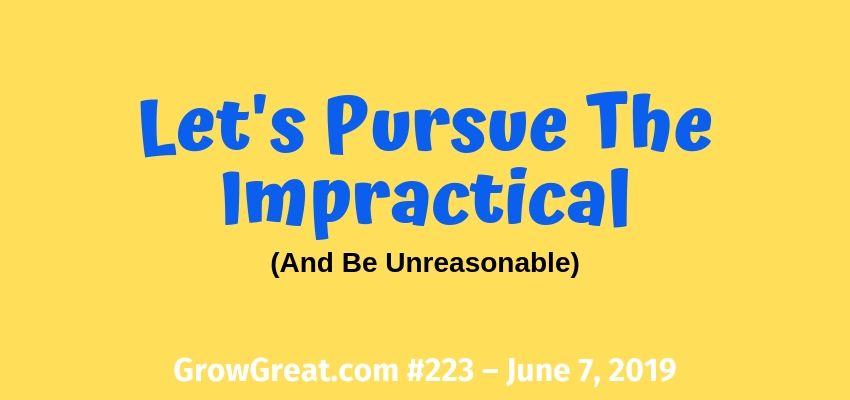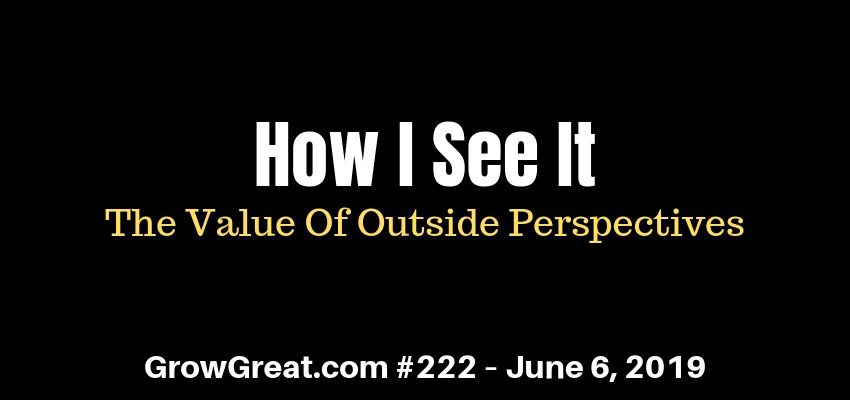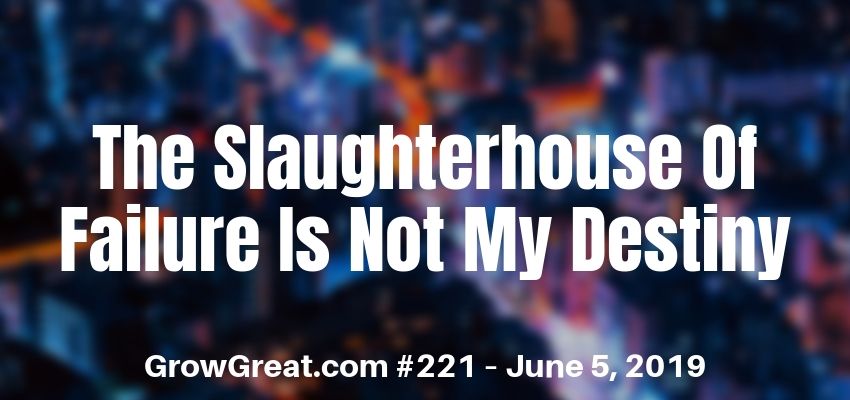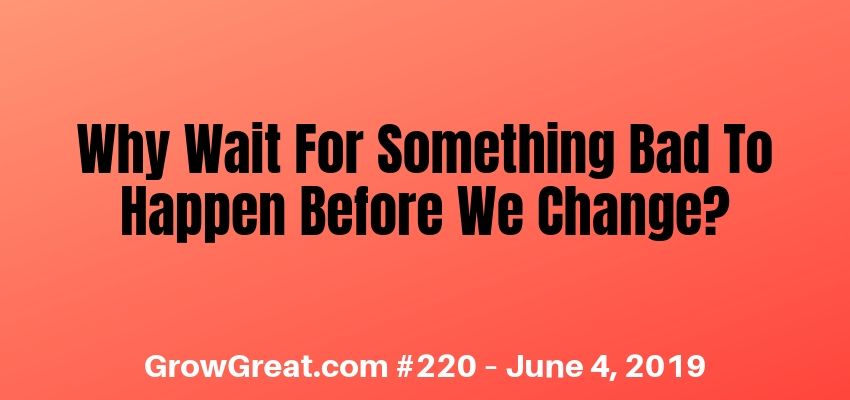People Aiming Higher vs. People Aiming Lower – Grow Great Daily Brief #225 – June 11, 2019
Podcast: Play in new window | Download (Duration: 8:09 — 10.5MB)
Subscribe: Apple Podcasts | Spotify | RSS | More
Recently I’ve been leveraging the power of character strengths to help leaders and business owners figure out improved team alignment. It begins with leaders having an enlightened awareness of their own character. This isn’t a talent or skill based strength. Rather, it’s character. It’s much more geared toward the essences of who you are at a particular moment. Think of it as how you roll. Your default operating system.
When it comes to any conversation about the people who surround us alignment is important. Especially when it’s people who make up our team. But it’s important when it comes to who we allow to influence us.
No man is an island. True enough. Even loners suffer impact from others. Today more than any other time in my lifetime, people are influenced by complete strangers. People we don’t know. People we’ve never met. People we’ll never meet. People we interact with – or listen to via Twitter, Instagram, YouTube and Linkedin. There’s a collective noise that impacts us even though these people are largely people who don’t know us. Certainly not well enough to understand the context of our life. But still we may listen to them.
Today I’m focused on just two groups of people: people aiming higher or people aiming lower.
You may be thinking, “Who aims lower?” Plenty of people. Just look at their behavior and choice. Foolishness knows no bounds. These people aren’t aiming higher. Many aren’t aiming at all. They’re just putting one foot in front of the other pursuing whatever they most want at the time.
If people aren’t aiming higher does that mean they’re naturally aiming lower? Yes. Otherwise, you’d have to argue that being aimless isn’t aiming lower. 😀
Before we get to that though, let’s think about who we listen to. Who influences us. There are 2 groups: a) those we recognize who influence us (the people we intentionally allow) and b) those we may not be aware of (the people we may not consciously give permission, but we really do care what they think).
Think about both groups. Be thoughtful enough to improve your awareness of these people.
Now, armed with that, dig deep and be even more mindful about whether these people are aiming higher or lower. Don’t be wishy-washy. Make your determination quickly. You know the answer.
Let me help you. People either fuel you and help you reach higher, climb higher and perform better. Or they don’t. It’s binary. It’s one or the other. No middle ground.
Go through your list of people and think arrow UP or arrow DOWN. Arrow UP means they elevate you. Arrow DOWN means they sap you diminishing your energy.
Go as deeply into the roster of people who surround you as you’d like. Family. Friends. Business acquaintances. Company teammates. Direct reports. Social media connections. Cultural figures you pay attention to. Anybody. Everybody.
Brace yourself because many people who dare do this exercise find the roster filled with people who don’t help them at all. Rather, many rosters are filled with people who drain energy, deter high performance and squash courage.
Let’s start with the negative influencers – the folks aiming low. You won’t change them. Why spend any energy or time trying to convert them? People who see the storm clouds off in the distance even though the skies above us are clear…what do you suppose you can do to change them? NOTHING. Well, that’s not entirely true. You can waste your time and pump more energy into trying to get them to embrace the clear skies directly overhead. But it’s a losing proposition. Unless you just enjoy evangelizing to unbelievers who will never convert — because they don’t want to.
That’s why being surrounded by victims will rub off on you. And why fear mongers will increase your fears.
So what do you do? First, identify these people. Until you do that, nothing will improve. Next, jettison them from your life. If not altogether, then to the biggest degree possible. Squeeze them out of your life by making up your mind that there’s just no room for energy robbers.
You don’t allow thieves into your house because you know they’re going to rob you. Then why are you allowing energy thieves into your life knowing they’re stealing something more valuable than your stuff?
Contrast these folks with the people on your list who are aiming higher and pushing you to aim higher, too. These people are encouraging. Maybe not always comfortable because they’re not sitting back admiring life. But you know they benefit you. They make your fuel needle go higher!
When you’re around these people you leave feeling energized. Or challenged. They help you see things more clearly. They don’t tell you what you want to hear because that’s not their motive. Their motive is to help you grow. They want what’s best for you.
Every person who is suffering a wrecked life has too many people surrounding them who are aiming low. Like a limbo dancer, their lives are epitomized by the question, “How low can you go?” It’s remarkable how low a life can go, thanks in large part to listening to low aiming marksmen intent on hitting their target.
Every person who is experiencing high achievement has a number of people surrounding them who are aiming high. They constantly wonder how much higher they can go. What grand achievements may be possible…pursuits they may have yet to chase because they didn’t think big enough. But the high aimers in their life nudge them to consider such things, pushing them to dream bigger and to give their dreams the effort they deserve.
1 Corinthians 15:33 “Be not deceived: Evil companionships corrupt good morals.”
Every parent knows it. Every criminal knows it. Every cheater, liar, and thief knows it.
Our greatness as people hinges on being people with good character. That means we exercise increasingly good judgment to surround ourselves with the best people possible – the people who are always aiming higher.
Be well. Do good. Grow great!
Randy

